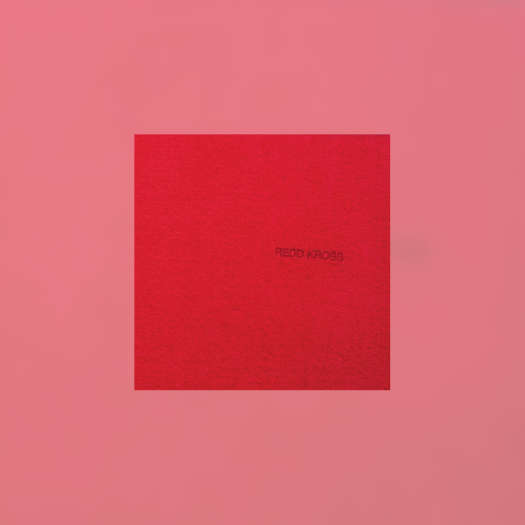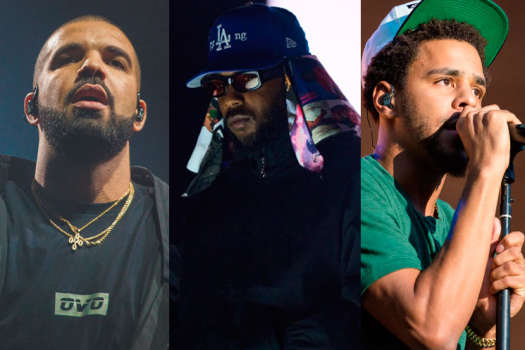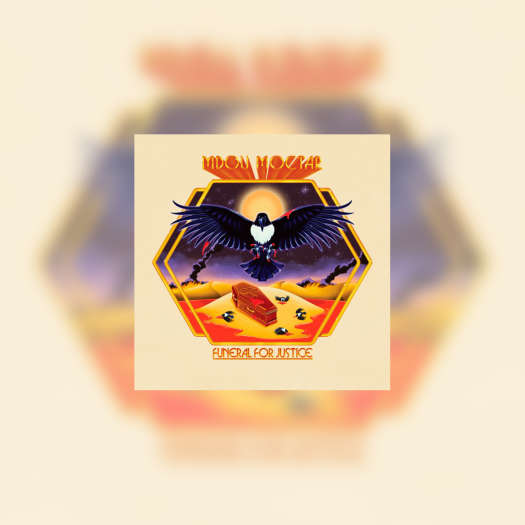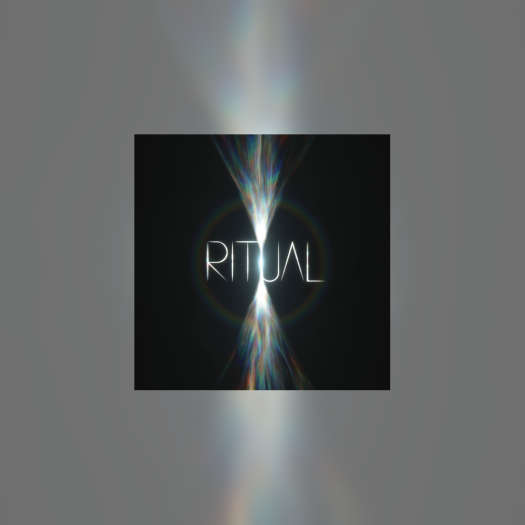Having stolen scenes in everything from The Mindy Project and Eastbound & Down to Neighbors and Blockers, Ike Barinholtz is a go-to guy for playing tragically comic goofballs. With his directorial debut, The Oath, however, Barinholtz has traded dorkiness for darkness as he attempts to navigate the endlessly frustrating political climate plaguing Americans.
In addition to writing and directing, Barinholtz stars as Chris — a man whose Thanksgiving dinner is ruined when his family insists on debating politics. More specifically, they're up in arms about "the Oath" — a new governmental pledge that one signs to promise their loyalty to the United States.
Barinholtz is joined by an all-star cast that includes Tiffany Haddish, John Cho, Carrie Brownstein, Max Greenfield and Billy Magnusson, but The Oath's tone is pitch black, demonstrating the mayhem that can arise out of the inner turmoil of political disagreements.
Exclaim! caught up with Barinholtz to discuss the film, which opens across Canada October 18.
What are you sick of everyone asking you about the film?
Honestly, someone asked me that the other day. They were like, "You must be sick of talking about it." And the reality is, dude I spent a year making this thing and talking to the same 25 people. So now that I'm able to go around and show it to the world is still really exciting to me. It's almost like you've been talking to yourself for a year, and other people enter the room and you're like, "Oh, I have so much to say!" I'm loving it, man.
You must have to really believe in an idea to focus on it that much for a year.
I do, man. I basically took what was in my head — the craziness, and the stress and the anger — and I put it into a movie. I wanted to tell a story that I thought was reflective of how I — and I think a lot of people — feel in 2018. Which is, you wake up and you look at your Twitter right away: the first thing you see is a really funny video of like a pig wearing a diaper, and you're like, "Oh my God, this pig is wearing a diaper! That's hilarious. I love diaper pig." Then you go to the next tweet, and it's about the famine in Yemen and you start crying. I think we're just kind of on this perpetual emotional rollercoaster where it's very hard to get off. I wanted to make a movie that encapsulates that feeling, and I think we did it.
It's hard to imagine that you worked on this for a year, because the situation you're describing could've even happened today.
I came up with the idea almost two years ago, after the 2016 election. After that Thanksgiving, where I got into a big fight with my mom and my brother, I kind of thought right away that I want to tell a story about a family fighting at Thanksgiving. Then we started weaving in these other ideas about a loyalty oath. And the craziest thing is, while we were making the movie, along every step of the way, things all started happening in the news that were all about loyalty. You know, Trump pinned down James Comey and demanded loyalty from him. There was something called National Loyalty Day. Even just the other day, I read in the new NAFTA renegotiation, there's this kind of hidden language in there about loyalty. You know, like, "If Canada renegotiates with someone and they break our loyalty….." I knew that the concept was resonant, and I knew that it kept feeling fresher and fresher. I thought "I have to take that as a good sign." I mean, it's a good sign for the movie, but it's a bad sign for society perhaps.
You really do capture the helpless rage that one can feel from that stuff.
It's true. I think that's what my character has to learn is that just reading Twitter all day and screaming about how angry you are isn't enough. You have to do more. You have to vote. You have to make sure people are registered to vote. You have to find candidates you like and help them in any way you can. On an individual and community-based level, you have to take care of the people around you. If you do those things, you'll feel a little less helpless. But my character Chris is just stuck in that bubble. It's just the rage all the time.
Even if you were someone who wasn't paying attention to politics somehow, we all feel that rage just from being online all the time. Do you think social media was a mistake?
I mean, it's such a double-edged sword. It's impossible to say it's 100 percent a net bad, because it's brought so many people together. I know so many couples that are together now because of social media. Information is spread quickly. There's so many things that are like, "Hey this guy lost his wife and has nothing," like GoFundMe. So there are all these positive applications. But on the flip side of that, it's brought about some true horror. We know that we have people who live in this country and in Canada and all over who have what I would consider to be incredibly dangerous ideas. For years, they were very isolated and would have no motivation to act on these ideas. But the internet has allowed these people to nurture their bad ideas and embolden them. Like everything in life, it can be really beautiful and wonderful and great but it can also bring about actual terror. So it's impossible to say yes or no to, but I think it's worth examining.
How do we solve the divide between these different groups of people?
It's tough. I can tell you this — I don't have the solution. No one does. But I do know that a thing that could make a bad situation worse is if we no longer have any forms of contact and communication. If you read this great political philosopher named Hannah Arendt. She wrote this book called The Origins of Totalitarianism. And she very clearly says that as people get more and more divided and you have an emergence of demagogic figures, the worst thing that can happen is for people to internalize things and say, "I don't want to talk to my cousin anymore because he is a hardcore Trump supporter." And that's easy to do, and I don't blame people for not wanting to talk to relatives that they're philosophically strongly opposed to. But if we don't have a line of communication open and we sever those ties, then they're not going to hear any other opinion other than the ones they listen to in their own echo chamber. And when the tides do turn politically, you won't be able to reattach to them. And that's when really bad things can happen. So I don't have the solution, but I can tell you part of the problem is lack of communication.
Your movie can inspire conversations like this, but it's also got jokes. Plot-wise and tone-wise, you've really threaded the needle. What were some of your reference points, and how did you land at the tone you landed at?
I love MASH. I thought MASH was such a great movie, and it's able to make you laugh and also make you aware that people are in a war zone and getting their limbs blown off. I thought a lot about that, and then there's movies recently. I had already written a draft of this and then I saw Get Out, and Get Out will scare the hell out of you and you can't be any more scared and then all of a sudden Lil Rel shows up and talks about sex slaves to TSA people. So I knew this movie was not going to be a pure comedy, because then we would be neglecting the gravity of these very real problems and the angst people feel. But on the same token, if I just made it a straightup dramatic scary thriller then people would say there's no heart — now you've taken out the humanity. You know, we still laugh when we're with our family. So I knew it was always going to be this unique tone. And I really got a lot of help from friends like Jordan Peele. When he watched it, he was like, "Make sure you don't go too funny, because then you'll take them out of the thrilling part. And make sure you don't go too sad and too dark, because then you're going to ask too much of the audience to laugh again." So it really was kind of a high wire act.
Speaking of partisan debates, have you read the reviews of The Oath? It's very up and down.
We knew when we were making this movie — one of the producers, Sean McKittrick, said to me, "Critics are going to tear this movie apart." And I was kind of Pollyanna-ish. I thought, "Why? I don't think so!" And he said, "Well, because you really go after the dark side of the right, and you make fun of the softness of the left. And you don't really give people a lot of room. So you're going to have people that are really divisive. We love it, but just so that you know." So I was kind of prepared for that. And then when the first block of reviews came out, they were very good. Then the bad reviews start coming in, and then you get a good review, and then a bad review. I think it's important — my advice to filmmakers is this: While you're out promoting and getting people to go see this movie, don't read reviews yet. Focus on the story you're telling. Focus on why you're telling it, why you think people need to see it. Then, when it's all over, you go and sit and have a beer and read through them. Some of them are, even if they don't connect with the movie, some of them will have good points. If you're going to have growth as a filmmaker, you have to see what people thought. But it's pretty much par for the course with what we were expecting, because it is such a unique film and really takes no prisoners, I would say. So to me, I truly welcome it. To quote Lin-Manuel Miranda, "I'd rather be divisive than indecisive."
In addition to writing and directing, Barinholtz stars as Chris — a man whose Thanksgiving dinner is ruined when his family insists on debating politics. More specifically, they're up in arms about "the Oath" — a new governmental pledge that one signs to promise their loyalty to the United States.
Barinholtz is joined by an all-star cast that includes Tiffany Haddish, John Cho, Carrie Brownstein, Max Greenfield and Billy Magnusson, but The Oath's tone is pitch black, demonstrating the mayhem that can arise out of the inner turmoil of political disagreements.
Exclaim! caught up with Barinholtz to discuss the film, which opens across Canada October 18.
What are you sick of everyone asking you about the film?
Honestly, someone asked me that the other day. They were like, "You must be sick of talking about it." And the reality is, dude I spent a year making this thing and talking to the same 25 people. So now that I'm able to go around and show it to the world is still really exciting to me. It's almost like you've been talking to yourself for a year, and other people enter the room and you're like, "Oh, I have so much to say!" I'm loving it, man.
You must have to really believe in an idea to focus on it that much for a year.
I do, man. I basically took what was in my head — the craziness, and the stress and the anger — and I put it into a movie. I wanted to tell a story that I thought was reflective of how I — and I think a lot of people — feel in 2018. Which is, you wake up and you look at your Twitter right away: the first thing you see is a really funny video of like a pig wearing a diaper, and you're like, "Oh my God, this pig is wearing a diaper! That's hilarious. I love diaper pig." Then you go to the next tweet, and it's about the famine in Yemen and you start crying. I think we're just kind of on this perpetual emotional rollercoaster where it's very hard to get off. I wanted to make a movie that encapsulates that feeling, and I think we did it.
It's hard to imagine that you worked on this for a year, because the situation you're describing could've even happened today.
I came up with the idea almost two years ago, after the 2016 election. After that Thanksgiving, where I got into a big fight with my mom and my brother, I kind of thought right away that I want to tell a story about a family fighting at Thanksgiving. Then we started weaving in these other ideas about a loyalty oath. And the craziest thing is, while we were making the movie, along every step of the way, things all started happening in the news that were all about loyalty. You know, Trump pinned down James Comey and demanded loyalty from him. There was something called National Loyalty Day. Even just the other day, I read in the new NAFTA renegotiation, there's this kind of hidden language in there about loyalty. You know, like, "If Canada renegotiates with someone and they break our loyalty….." I knew that the concept was resonant, and I knew that it kept feeling fresher and fresher. I thought "I have to take that as a good sign." I mean, it's a good sign for the movie, but it's a bad sign for society perhaps.
You really do capture the helpless rage that one can feel from that stuff.
It's true. I think that's what my character has to learn is that just reading Twitter all day and screaming about how angry you are isn't enough. You have to do more. You have to vote. You have to make sure people are registered to vote. You have to find candidates you like and help them in any way you can. On an individual and community-based level, you have to take care of the people around you. If you do those things, you'll feel a little less helpless. But my character Chris is just stuck in that bubble. It's just the rage all the time.
Even if you were someone who wasn't paying attention to politics somehow, we all feel that rage just from being online all the time. Do you think social media was a mistake?
I mean, it's such a double-edged sword. It's impossible to say it's 100 percent a net bad, because it's brought so many people together. I know so many couples that are together now because of social media. Information is spread quickly. There's so many things that are like, "Hey this guy lost his wife and has nothing," like GoFundMe. So there are all these positive applications. But on the flip side of that, it's brought about some true horror. We know that we have people who live in this country and in Canada and all over who have what I would consider to be incredibly dangerous ideas. For years, they were very isolated and would have no motivation to act on these ideas. But the internet has allowed these people to nurture their bad ideas and embolden them. Like everything in life, it can be really beautiful and wonderful and great but it can also bring about actual terror. So it's impossible to say yes or no to, but I think it's worth examining.
How do we solve the divide between these different groups of people?
It's tough. I can tell you this — I don't have the solution. No one does. But I do know that a thing that could make a bad situation worse is if we no longer have any forms of contact and communication. If you read this great political philosopher named Hannah Arendt. She wrote this book called The Origins of Totalitarianism. And she very clearly says that as people get more and more divided and you have an emergence of demagogic figures, the worst thing that can happen is for people to internalize things and say, "I don't want to talk to my cousin anymore because he is a hardcore Trump supporter." And that's easy to do, and I don't blame people for not wanting to talk to relatives that they're philosophically strongly opposed to. But if we don't have a line of communication open and we sever those ties, then they're not going to hear any other opinion other than the ones they listen to in their own echo chamber. And when the tides do turn politically, you won't be able to reattach to them. And that's when really bad things can happen. So I don't have the solution, but I can tell you part of the problem is lack of communication.
Your movie can inspire conversations like this, but it's also got jokes. Plot-wise and tone-wise, you've really threaded the needle. What were some of your reference points, and how did you land at the tone you landed at?
I love MASH. I thought MASH was such a great movie, and it's able to make you laugh and also make you aware that people are in a war zone and getting their limbs blown off. I thought a lot about that, and then there's movies recently. I had already written a draft of this and then I saw Get Out, and Get Out will scare the hell out of you and you can't be any more scared and then all of a sudden Lil Rel shows up and talks about sex slaves to TSA people. So I knew this movie was not going to be a pure comedy, because then we would be neglecting the gravity of these very real problems and the angst people feel. But on the same token, if I just made it a straightup dramatic scary thriller then people would say there's no heart — now you've taken out the humanity. You know, we still laugh when we're with our family. So I knew it was always going to be this unique tone. And I really got a lot of help from friends like Jordan Peele. When he watched it, he was like, "Make sure you don't go too funny, because then you'll take them out of the thrilling part. And make sure you don't go too sad and too dark, because then you're going to ask too much of the audience to laugh again." So it really was kind of a high wire act.
Speaking of partisan debates, have you read the reviews of The Oath? It's very up and down.
We knew when we were making this movie — one of the producers, Sean McKittrick, said to me, "Critics are going to tear this movie apart." And I was kind of Pollyanna-ish. I thought, "Why? I don't think so!" And he said, "Well, because you really go after the dark side of the right, and you make fun of the softness of the left. And you don't really give people a lot of room. So you're going to have people that are really divisive. We love it, but just so that you know." So I was kind of prepared for that. And then when the first block of reviews came out, they were very good. Then the bad reviews start coming in, and then you get a good review, and then a bad review. I think it's important — my advice to filmmakers is this: While you're out promoting and getting people to go see this movie, don't read reviews yet. Focus on the story you're telling. Focus on why you're telling it, why you think people need to see it. Then, when it's all over, you go and sit and have a beer and read through them. Some of them are, even if they don't connect with the movie, some of them will have good points. If you're going to have growth as a filmmaker, you have to see what people thought. But it's pretty much par for the course with what we were expecting, because it is such a unique film and really takes no prisoners, I would say. So to me, I truly welcome it. To quote Lin-Manuel Miranda, "I'd rather be divisive than indecisive."




